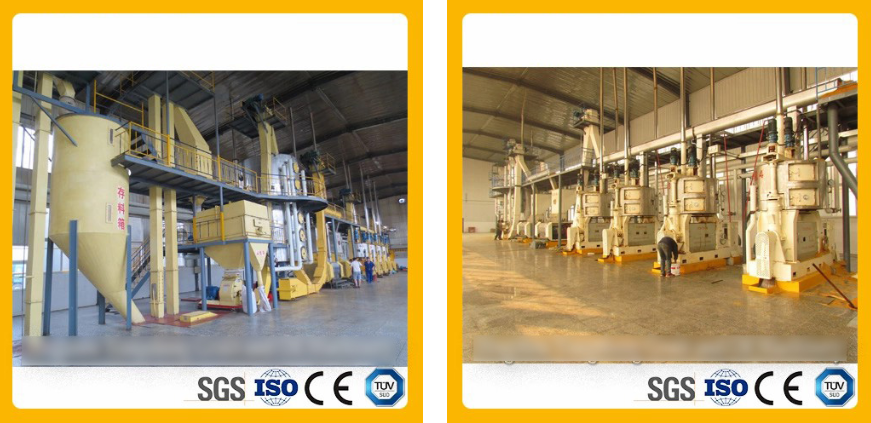Nov . 11, 2024 12:40 Back to list
famous press shaft of oil expeller
The Famous Press Shaft of Oil Expellers A Closer Look
Oil expellers have revolutionized the way we extract oil from seeds and nuts, making the process efficient and accessible. At the heart of this innovation lies the press shaft, a crucial component that significantly influences the performance and efficiency of these machines. In this article, we will take an in-depth look at the design, function, and importance of the famous press shaft in oil expellers.
Understanding the Press Shaft
The press shaft is the central element of an oil expeller. It is a cylindrical rod that rotates within the expeller's chamber, applying pressure to the seeds or nuts fed into the system. This pressure is essential for breaking down the cellular structure of the seeds, enabling the oil to be extracted. The press shaft is typically made from high-quality steel or other durable materials that can withstand the considerable force exerted during operation.
Design Features
One of the primary considerations in the design of the press shaft is its ability to withstand high temperatures and pressures. As seeds are crushed, friction generates heat, which can affect both the yield and quality of the oil extracted. Modern oil expellers often feature shafts that have specialized coatings or are treated to enhance their strength and resistance to wear. Additionally, the design may incorporate grooves or threads along the shaft, enhancing the extraction capacity by increasing the surface area in contact with the seeds.
Another important aspect is the press shaft’s diameter and length. A wider shaft can hold more material, increasing the oil yield per cycle, while the length contributes to the pressure exerted on the seeds. Oil mill manufacturers often customize these dimensions to cater to specific types of seeds or desired production rates.
Functionality and Efficiency
famous press shaft of oil expeller

The functionality of the press shaft extends beyond mere extraction; it also plays a vital role in the overall efficiency of the oil expeller. The rotation speed of the shaft directly influences the extraction rate. A well-designed press shaft enables optimal compression, ensuring that the maximum amount of oil is extracted without excessive energy consumption. This efficiency is crucial in commercial oil production, where both time and cost are significant factors.
Moreover, the integration of advanced technologies, such as variable speed drives, allows for better control of the press shaft’s operation, adapting to different seed types and improving the overall yield
. Modern expellers often feature sensors and automated systems to monitor the performance of the press shaft, ensuring consistent quality in oil production.Importance in Oil Processing
The press shaft in oil expellers is not merely a mechanical tool; it plays a pivotal role in ensuring the quality and nutritional value of the oil produced. Efficient extraction minimizes the amount of heat generated, preserving the delicate nutrients and flavors of the oil. This is particularly important for health-conscious consumers seeking cold-pressed oils that retain their natural properties.
In the competitive world of oil production, the quality of the press shaft can distinguish high-quality oil producers from their competitors. Companies that invest in advanced press shaft technology often enjoy not only increased production rates but also enhanced product reputation, garnering trust from consumers.
Conclusion
In summary, the press shaft of oil expellers is a foundational component that combines engineering excellence with functionality. Its design, functionality, and importance in the oil extraction process cannot be overstated. As technology evolves, we can expect further innovations in press shaft design, leading to even greater efficiencies and higher quality oils, solidifying the press shaft's reputation as a cornerstone of modern oil processing. The ever-increasing demand for natural oils emphasizes the need for continuous improvement in this vital machinery, ensuring that the oil extraction industry can meet the challenges of tomorrow.
-
HP 120 Cold Oil Press-Hebei Huipin Machinery|Oil Extraction, Cold Press
NewsAug.07,2025
-
HP 120 Model Cold Oil Press-Hebei Huipin Machinery|Cold Oil Extraction, High Efficiency
NewsAug.07,2025
-
HP 120 Model Cold Oil Press - High-Efficiency Oil Extraction&Automated Processing
NewsAug.07,2025
-
Safflower Oil Press Service | Expert & Efficient Solutions
NewsAug.07,2025
-
HP 120 Model Cold Oil Press - Hebei Huipin Machinery | Advanced Oil Extraction Technology
NewsAug.06,2025
-
HP 120 Cold Oil Press-Hebei Huipin Machinery|Cold Pressing, Oil Extraction
NewsAug.06,2025
